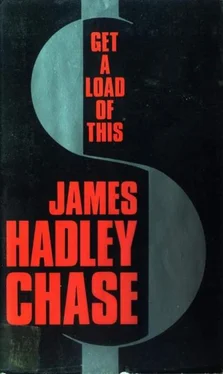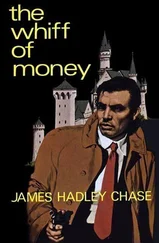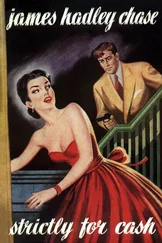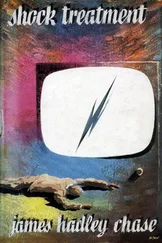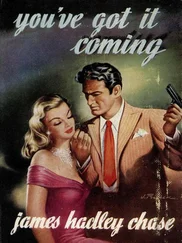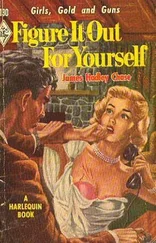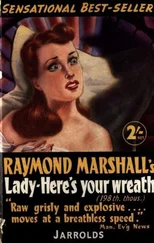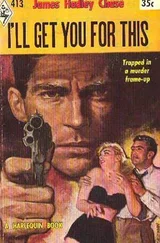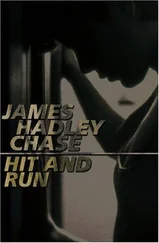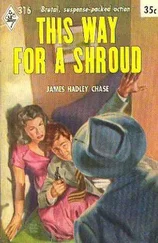She put the brassiere on him and padded it out with two small towels. He stood there, looking horrible. Therese felt an insane urge to laugh at him, but she knew he would do something to her if she did. Her hands snatched the dress from the bed and pulled it roughly over his head; then she stepped back to see the effect. She thought he looked like a lost soul out of hell.
“Try those shoes on,” she said.
He stooped awkwardly and fitted his feet into the high-heel shoes. Although they fitted him, he couldn’t walk in them. She had to hunt again under the chest of drawers and find him a pair of sandals. A big, wide brim hat completed the picture. In the dark he’d pass anywhere. She nodded her approval. “You’ll do,” she said. “You don’t have to worry your head no more.”
She wrapped his suit in a gaily coloured shawl and made a bundle of it. “Now,” she said, “we’ll get goin’. Where are you headin’ for?”
All the time she had been putting his things together the boy had just stood and watched her. All the time she had been supervising his dressing, he had said nothing. When at last he did speak, his voice was so harsh and brittle that it quite startled her. “You ain’t coming with me,” he said. “I’m goin’ alone.”
She shrugged, suddenly feeling tired of him. She had risked a lot, and she knew every second he stayed with her the risk increased.
“Then go,” she said. “I guess you’re big enough to take care of yourself.”
He shuffled to the door, hating her for putting him in this position. He no longer had any confidence in himself. To be dressed like this took from him his sense of manhood. Somehow the clothes made him feel helpless, and the thought of the darkness outside terrified him.
Therese watched him go. He had no word of thanks for her. He didn’t even look at her again. With his hand on the rail to guide him he edged carefully down the wooden stairs, his knees shaking as the sandals threatened to pitch him forward.
The moon hid behind cloud and he could see nothing. When he reached the bottom of the stairs he had to wait until his eyes grew accustomed to the darkness. Then, when he could just make out the roof-tops against the sky, he moved slowly away from the house.
He had not gone far before he ran into a group of soldiers who had been watching him approach. They had been out in the darkness a long time and they could see, whereas he was still nearly blind.
It was only when they crowded round him that he realized that he was trapped. He stood very still, terror completely paralysing him.
In the darkness, the soldiers took him for some unprotected girl, and, anxious to relieve their boredom, began to quarrel amongst themselves. He had to stand helpless, while they drew lots for him.
It would have been unfortunate if he had been a girl. But when they discovered his identity there was a long pause of terror while they persuaded the soldier who had dragged him away from the rest of them not to kill him immediately with his bayonet. They pointed out, reasonably enough, that there was at least one subtle thing to do to him before they finally finished with him.
THE MAGNIFICENT OPPORTUNITY
The Mexican General, Cortez, and two officers of his staff sat at a big table covered with maps and papers. The two officers sat very still and upright, their eyes fixed in a blank stare at the map which the General was examining. They had already reached a decision, and the tight tenseness of their muscles indicated their impatience for the General to speak.
The sentry, posted at the open door, watched the little group at the table with bored eyes. Those three had been sitting round the table for four hours whispering together, and now for the past half-hour they hadn’t even spoken. A fine way to win a revolution, the sentry thought, and spat contemptuously into the courtyard.
Holtz, the younger of the staff officers, shifted suddenly in his chair. His companion, Mendetta, looked at him with a scowl, moving his head warningly, but Holtz’s movement had already distracted the General, who pushed back his chair and stood up.
The sentry pulled his long, slack body away from the doorway, and his eyes looked a little less bored. Perhaps something was going to happen at last, he thought hopefully.
Cortez walked away from the table and paced the length of the room. His big fleshy face was heavy with thought. He said abruptly, “The situation is bad.”
The two officers relaxed a trifle. They had arrived at that decision more than a half an hour ago.
Holtz said: “Your Excellency is right. It is very bad.”
The General looked at him sourly. “How bad?” he demanded, coming back to the table. “Show me here.” He put a thick finger on the map. “How bad?”
Holtz leant forward. “This is how I see it,” he said. “The enemy are in considerable strength. They are well mounted and they have artillery. If we attempted to make a stand here we could be surrounded. We are outnumbered by four to one and our men are tired. They are even disheartened. We have been retreating for the last two weeks.” He tapped the map. “Against artillery we could not hold this position long, then it would be too late to fall back. I think we should withdraw immediately.”
The General ran his fingers through his close-cropped iron-grey hair. “And you?” he said, looking at Mendetta.
“We would have to leave the gun,” Mendetta said slowly, knowing that he had touched the point on which the whole situation hinged. “We should not have time to get the gun up the mountain-path to the hills. The enemy are hardly three hours’ ride from here. If we retreated now, the gun would have to be abandoned.”
Cortez smiled. “The gun goes with us. Make no mistake about that. We have taken that gun from the enemy and we have dragged it for three hundred miles. We will not abandon it now.”
The two officers glanced at each other and shrugged. It was to be expected. They had anticipated that, sooner or later, the accursed gun would endanger the safety of the tattered, retreating army. It was not as if they had any shells. The gun was useless. It was, however, a symbol of the only victory General Cortez had scored against the enemy in a lightning raid, and under no circumstances was he parting with such a symbol. If he was driven back over the mountains, he was determined that the gun should go with him.
Holtz said, “Your Excellency has no doubt made his plans?”
There was no longer a bond of sympathy between the two officers and the General. Let the old fool get out of this if he could. They had no wish to endanger their lives for the sake of a captured, useless gun. They were young enough to accept defeat, knowing that they could win perhaps fresh glory another day, but Cortez was getting old. His time was nearly past.
The General felt their antagonism. He knew they would willingly leave the gun to save their skins, but as long as he was in command they would do as he said. He knew them well enough for that. They might think he was a crazy old fool, they might even grumble, but if he told them the gun was to go, they would obey.
He sat down at the table again. “One of you will take four men and hold up the enemy’s advance. You can have the Lewis gun and four rifles. With the Lewis gun you should be able to hold them back long enough to let the remaining troops get clear. Do you understand?”
The two officers sat there stupefied. He was asking one of them to sacrifice himself for the gun. Not only that, but he was throwing away the only Lewis gun they had ever possessed. A gun of the utmost value because they had a large quantity of ammunition to go with it. All for a stupid, rusty, useless field-gun, the symbol of his only victory.
Читать дальше
